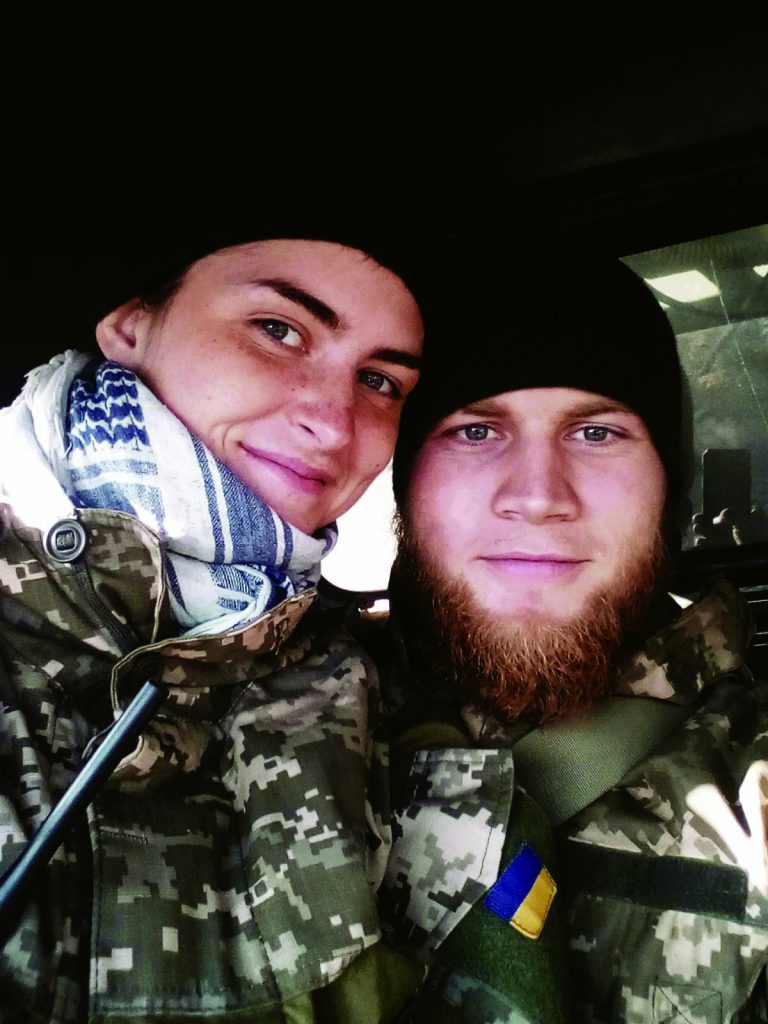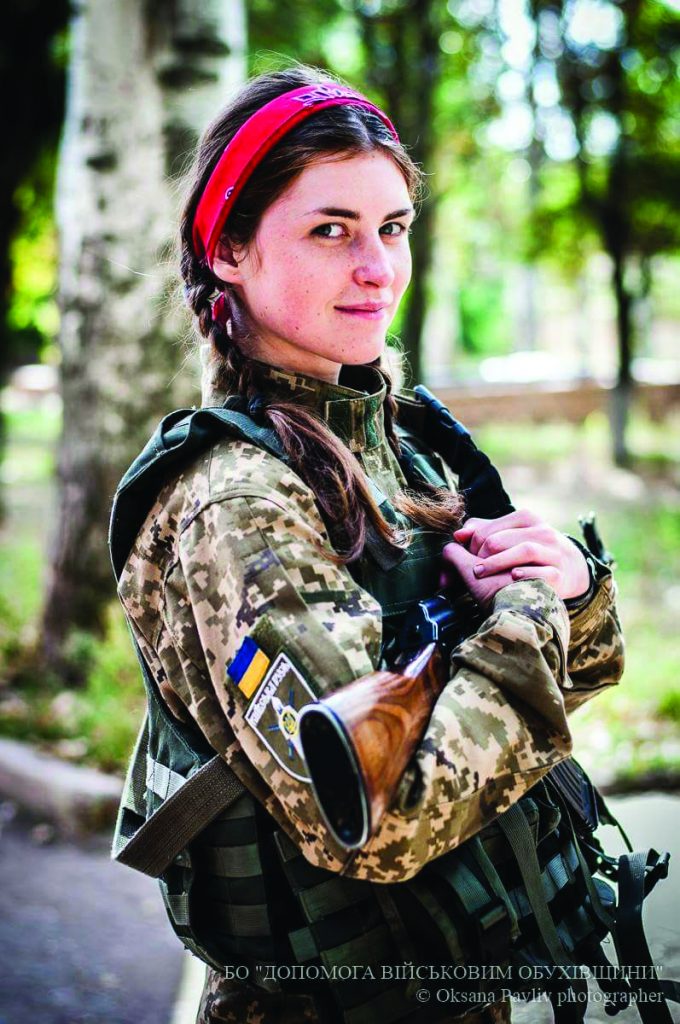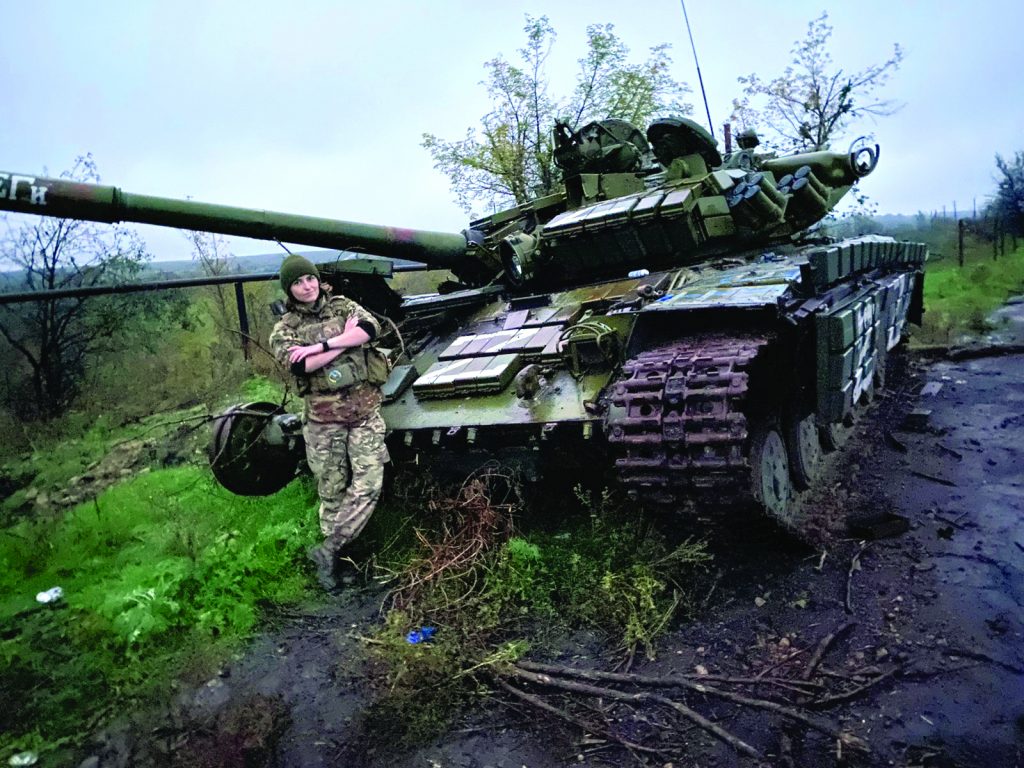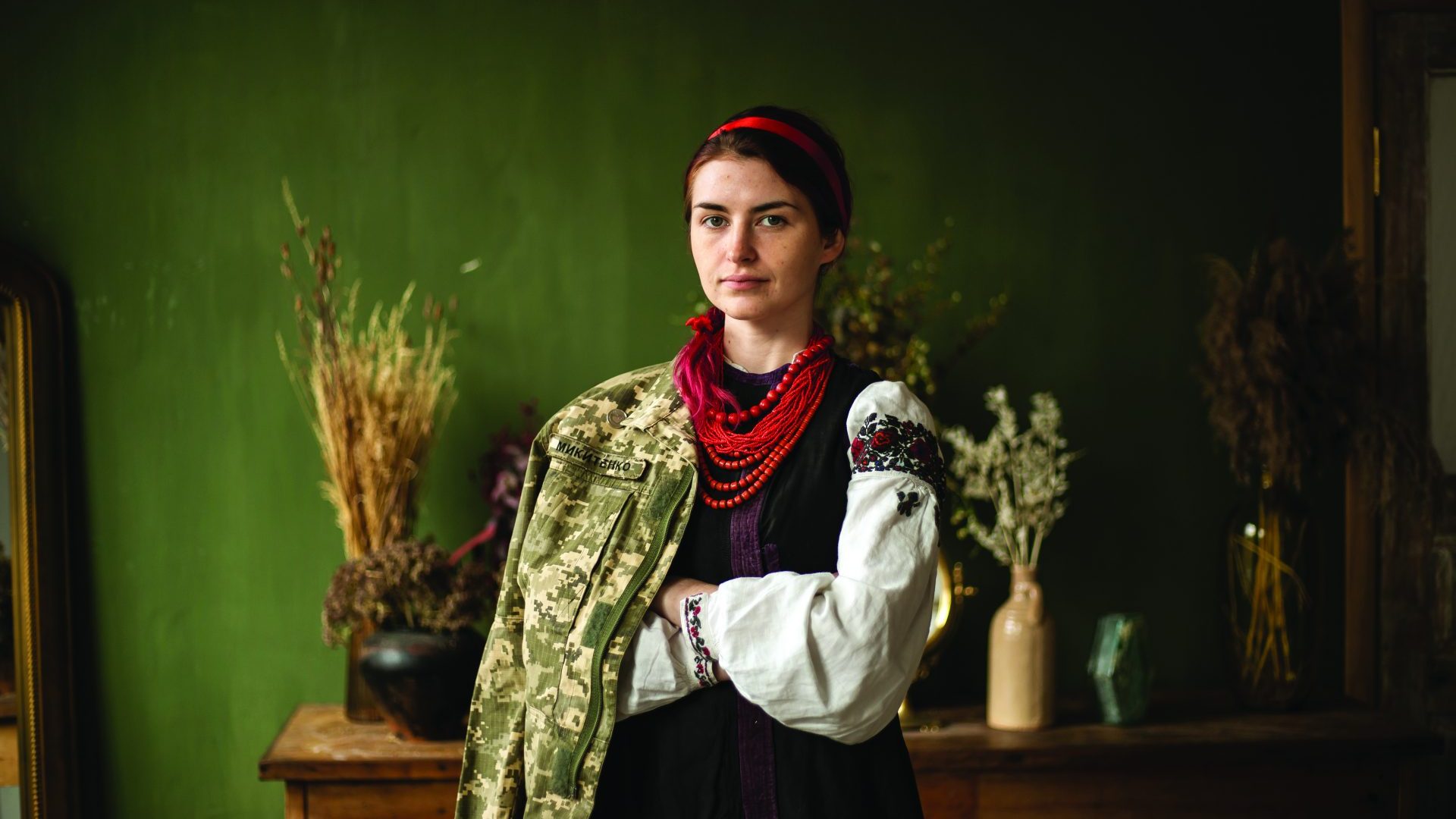How Good It Is I Have No Fear of Dying is the biography of Lieutenant Yulia Mykytenko of the Ukrainian army, who commands a drone platoon on the frontline in the Ukraine. It is based on interviews Lt. Mykytenko gave via Zoom with journalist and author, Lara Marlowe. Marlowe has written it in the first person, so we get an intimate telling of Mykytenko’s remarkable story.
Sitting down to speak with Marlowe and Mykytenko, I ask them what their motivations were to tell this story. Marlowe was motivated first by Mykytenko as an individual, her intelligence and courage, but also by the fact that Mykytenko’s story is in many ways the story of Ukraine. Like the titular Midnight’s Children of Salman Rushie’s novel, that uses the lives of those born at the moment of India’s independence to tell the story of India, Mykytenko has been there at all the key events of Ukraine’s recent history. Her personal journey of discovery, loss, and resistance has mirrored that of her nation.
Mykytenko was born in Kyiv in 1995. She grew up speaking Russian, as speaking Ukrainian was seen as uncouth and reactionary. Attending the National University of Kyiv-Mohyla Academy to study Ukrainian philology, Mykytenko discovered the long suppressed Ukrainian language and its literature. The wider renaissance she is a part of is not about persecution of Russian speakers but affirming Ukrainian identity.
She notes with irony that Putin claimed his “special military operation” was in part launched to defend the Russian speakers and in doing so made Russian the language of the enemy. Many Russian speakers in Ukraine switched to Ukrainian.
In late 2013, the corrupt President Viktor Yanukovych decided not to sign the Ukraine Association Agreement with the EU, even though Ukraine’s parliament had overwhelmingly approved the Agreement. Instead, after pressure from Russia, Yanukovych chose closer ties with the Eurasian Economic Union, which is backed by Russia.
Mykytenko joined the protestors in Maidan Nezalezhnosti, “Independence Square”. She co-founded the ‘female squad’ of the 16th Regiment of the Self-Defence Force, espousing a form of peaceful protest amid the escalating violence. After Yanukovych was overthrown and fled to Russia, Mykytenko’s squad witnessed the extent of his corruption when they were assigned to protect his lavish 343-acre estate, complete with a palace, a zoo full of exotic animals, a collection of sports cars, and even faux classic ruins.
Having failed to gain control of Ukraine through his corrupt puppet, Putin launched his first invasion in early 2014, annexing Crimea and covertly supporting Russian separatists in the Donbas. In 2015, Mykytenko married Illia Serbian, and, after finishing her studies, she joined the army to serve with him in the Donbas. She was at the frontline when he was hit by a Russian bombardment and pleaded with her commander to lead a rescue mission under fire to recover Illia. Her request was denied. Illia was rescued hours later and died on the operating table.
Mykytenko’s father Mykola, was a veteran who after also protesting on the Maiden signed back up into the National Guard at forty-two. He was seriously injured while on an unsanctioned rescue mission to the crash site of general Serhii Kulchytski’s downed helicopter in the Donbas.
After becoming increasingly frustrated with Zelensky’s compromises and weakening of the armed forces, Mykola immolated himself on the Maiden. As he was consumed by flames, he shouted “Zelensky prevents us from fighting”. There was a photo of the Ukrainian dissident poet Vasyl Stus in his wallet. The book’s title is the first line of a famous poem by Stus, who died in a Soviet labour camp in 1985 after a hunger strike.
Mykytenko briefly left the army after Illia was killed, but despite her losses, and maybe in part because of them she re-enlisted on the first day of the 2022 invasion. She has been at the frontline for much of the time since. She identified early on that drones would be a key technology in a war that very often resembles the trenches of the First World War. For her bravery, she has been awarded the Medal of Courage, 3rd Class, for “individual courage and heroism while rescuing people or valued materials while endangering own life”.
The best soldiers are contradictory creatures: full of the bravado and confidence needed to run towards danger and inspire others to follow them, but also full of the humility to realise what they do is often not deserving of the praise they receive and the painful awareness that others braver than they are no longer here to receive that praise.
Mykytenko is quick to point out that her experiences are not special and that many others have been through much worse. There is little bravado, but she exudes a steely determination and a fierce intelligence. Her streaks of blue hair dye hint at a rebellious streak, one that benefits her soldiers as she, like many commanders, rotates them out of the frontline to give them breaks against orders from higher command. Mykytenko claims, for Ukrainian soldiers sent to the frontline indefinitely, this is no longer a war of attrition but a war of exhaustion.
Mykytenko admits an initial nervousness to tell her story, but she overcame this through her desire to counter Russian misinformation and tell the Ukrainian story of the war. Another motivation was to personalise the bare casualty statistics. The book is not a story of exaggerated heroism. No one wins a war; you trade losses of one kind for losses of another kind. In Ukraine it is loss of life to avoid the loss of freedom, democracy and land. This book is a book about loss. Two losses dominate – those of Illia and Mykola – but there are many more.
Mykytenko describes her platoon’s role in recovering the fallen. There is a connection between her work retrieving the bodies of the dead and her telling of this story: preservation of the fallen’s physical remains and then the preservation of their memories. Mykytenko tells me, “A person lives as long as there is someone alive to carry their memory.” The way the respective militaries in this conflict treat their dead tells us a lot about the value of life in the respective societies they represent.



The book is also about what Ukraine would lose if Russia were to win. With the death of a loved one, it is the finality of that loss that can be so hard to understand. Like losing people, freedoms once lost may be gone forever for those living in Ukraine today.
Soldiers in Ukraine are dying for ideals and freedoms we in the West now take for granted. Marlowe, a pacifist who marched against the war in Iraq, wants us to understand that Ukrainians are dying for us, so we don’t lose what we take for granted and seem slow to realise is under threat. She warns that this is the last war that Nato troops will not have to fight, if we do not give Ukraine the weapons, money and political support they need to win. In her mind it is the most clear-cut war in terms of moral justness in recent decades.
Mykytenko claims, “Unlike most wars, this conflict has a clear cause, profound meaning and stakes of enormous importance. If Putin is allowed to win, Ukraine, a country of forty-four million people, will cease to exist. The security of Europe and the entire world will be in question.”
The book is a stark rebuke to those worried about escalation with Russia. Putin’s red lines have repeatedly been crossed with no consequence and he has continued to escalate since 2014 in response to Western weakness. Mykytenko describes the hurt felt by Ukrainians when Western powers deployed their militaries to intercept the Iranian attack on Israel in April, when Ukraine had been requesting such support since 2022. Mykytenko asks, “Why are we considered second-class partners?”
Those with “Ukraine Fatigue” should read this book, not just to understand what genuine fatigue is at the frontlines of this war but to also be inspired by Ukrainian resistance. As Mykytenko says, “resistance is in itself a positive and hopeful thing.” However, soldiers, in the main, are also pragmatic. Asked what an acceptable end to the war would be, Mykytenko believes most soldiers will accept that, for now, the land held by Russia will likely have to be given up but in exchange it is crucial to have a guarantee of security through Nato membership. In 1994 Ukraine gave up its nuclear program after promises from the US, UK and Russia that its sovereignty would be protected. For Ukraine, no deal with Russia would be worth anything. This time they need nothing less than full membership.
I ask Mykytenko what message she has for leaders in European and Nato capitals. It is concise and compelling: “Do the right thing.” She wants them to show now the moral principles they claim to stand for. Mykytenko claims that “We know what we owe to those who went before us. I want to ensure that their lives were not given in vain.”
How Good It Is I Have No Fear of Dying: Lieutenent Yulia Mykytenko’s Fight for Ukraine by Lara Marlowe is published by Head of Zeus










